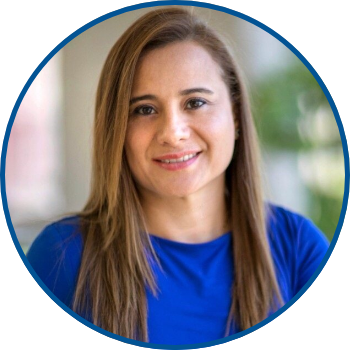Women Leaders in Pharma Interview Series
Women Leaders in Pharma Interview Series
Interview With Catalina Vargas

About Catalina
Catalina Vargas is Senior Vice President and Global Supply Chain (GSC) Lead at Bristol Myers Squibb (BMS). A global pharmaceutical executive with more than 20 years of experience, Catalina currently leads a team of more than 600 employees working to seamlessly deliver medicines to patients in more than 50 countries around the world.
Prior to her current role, Catalina was Chief of Staff to the CEO of BMS where she led important established strategic enterprise-wide initiatives. Catalina has an exceptional record of building high performing and agile global teams, and she is a passionate advocate for diversity and inclusion. In her Chief of Staff role, she led BMS’ diversity and inclusion commitments which included areas such as clinical trial diversity, health equity, workforce representation, employee giving and supplier diversity. She also led BMS Simplification, an initiative designed to reduce the complexity in enterprise processes and to improve of employees’ day-to-day experiences and simplify ways of working.
Catalina joined BMS in 2018 as Vice President, Strategic Sourcing and Procurement, Global Product Development and Supply, where she managed a complex supply chain to bring critical medicines to patients. During her time in this role, she successfully integrated the Celgene and BMS sourcing and procurement groups.
Prior to joining BMS, Catalina was with Pfizer for 18 years, where she was tapped for progressive leadership positions across strategic sourcing, global procurement and external manufacturing.
Born and educated in Colombia, Catalina has a bachelor’s degree in industrial engineering and a graduate degree in finance and capital markets.
Interview
What does your company do to support diversity in the workplace?
- At BMS, we believe that a diverse global workforce is essential to delivering the best possible outcomes for our patients. To bring this to life, we have dedicated business leaders heading each of our eight People and Business Resource Groups (PBRGs):
- B-Now: Bristol Myers Squibb Network of Women
- BOLD: Black Organization for Leadership and Development
- CLIMB: Cultivating Leadership, Innovation & Multigenerational Belonging
- DAWN: Disability Advancement Workplace Network
- OLA: Organization for Latino Achievement
- PAN: Pan Asian Network
- PRIDE: PRIDE Alliance
- VCN: Veterans Community Network
- Each PBRG is focused on a distinct dimension of diversity and is designed to harness the business insights and experiences of our global workforce.
- BMS’ commitment to inclusion and diversity extends far beyond our walls. For example, our people are advocates and champions for inclusion and diversity among our supplier network and the impact has been significant: our supplier diversity program brings agility and innovation to BMS while driving economic development, wealth, job creation and more for vulnerable communities. Our journey to $1 billion in diverse spend was achieved in 2022 while doing business with more than 600 suppliers.
Is there anything that you wish that you could have done differently in your career?
- I don’t know if I would do anything differently per se, however, I would continue to take risks when it comes to your career. It is easy to fall into an area that is comfortable for you, but it’s important to continue to push yourself. Whether it is taking an opportunity in a new function, or proactively connecting with people inside and outside of the organization to gain new perspectives, the importance of risk taking cannot be understated.
- This has made me a better professional and leader. For example, when I joined the GPS organization after being the chief of staff to the CEO, I was able to see the Global Supply Chain function in a unique way and apply the enterprise view I developed to process building and decision making.
What role has mentoring played in your career, either as a mentor, mentee or both?
- Mentorship is critical in developing your career, but it can be easy to deprioritize given the day-to-day work. In my career, I seek both opportunities to be a mentor to future leaders as well as to be a mentee. This allows for continuous learning and development. The reality is that no one has every answer, but seeking diverse perspectives and thinking can help shape how you address problems that arise to advance company objectives and personal development.
How much did exposure to different cultures impact upon your career journey?
- Exposure to different cultures has had an incredible impact on me personally and professionally. I was born and educated in Colombia, which has helped shape who I am as a leader. I remember the feeling when I moved to the states and I was on teams with people from different regions, countries and cultures, and understanding what that diversity, background and combined experience brings to the table opened my horizon and way of thinking and seeing things back then and now. It helps people, and teams get to a better end point, that combined with the beauty each culture brings is an amazing thing.
What is the one piece of advice that you would give to women in the Pharma Industry that will help them become better leader?
- Don’t be afraid to take risks and be comfortable with being uncomfortable. Embracing challenges and stepping out of your comfort zone is how you learn, grow, and expand your network. Remember, every experience, whether successful or not, is an opportunity to develop your leadership skills and build resilience.

